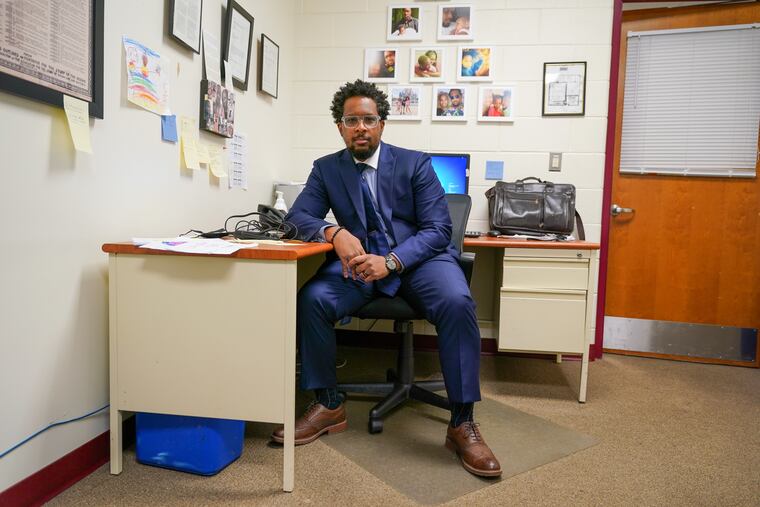A student once asked me if she should have an abortion. Without Roe, what would I say?
Over the years, many terrified young people facing an unplanned pregnancy have confided in the one adult they can trust: their teachers.

Upon hearing of, and reading, the leaked draft opinion that strikes down the Roe v. Wade decision, I immediately thought back to the day, many years ago, when one of my students asked to talk.
She was pregnant, unplanned. She was terrified and asked me if I thought she should have an abortion.
My student wasn’t ready to become a mom. The father-to-be was in college and shared with her that he wasn’t ready. However, she also respected the gravity of terminating a pregnancy.
I was the first adult she told.
» READ MORE: Hundreds of Roe v. Wade supporters in Philly protest a ‘worst nightmare’ for abortion rights
I was surprised, and in no way qualified to tell her what I thought. But she came to me because we had a bond. I was her counselor, social studies teacher, and a de-facto mentor. I had been a part of her life for years, since middle school. She trusted me, and I cared about her.
But I wrestled with what to advise. This was a student looking to her teacher for guidance and help making a decision that could affect the rest of her life.
I strongly encouraged her to speak with her mother, as well as her doctor. I also provided her with the name of the school’s social worker. The last thing I told her was that we live in a country where she’s been empowered to make the best decision for her.
Sadly, that may be coming to an end.
Over the years, many terrified young people facing an unplanned pregnancy have confided in the one adult they can trust: their teachers. When it happened to me, Roe was the law. What does a teacher say to a young adult in a post-Roe world?
“What does a teacher say to a young adult in a post-Roe world?”
In moments of fear and vulnerability, young people need our support the most. Even if our justice system turns its back on them, good teachers never will.
This issue is particularly concerning for Black women, like my former student.
Certainly, the overturning of Roe impacts all women, but my sincere fear is that as women move forward against this injustice, the uneven impact on Black women will be forgotten.
Someone who carries a pregnancy to term is 14 times more likely to die than someone who has an abortion, and among Black women, the rate of dying from pregnancy or childbirth is nearly four times that among white women.
For Black women wrestling with whether to carry an unplanned pregnancy to term, the decision isn’t simply about saving a life; it’s about saving their own life.
It’s a decision that Black women have wrestled with for generations, considering that any unborn Black child would have to navigate an anti-Black society.
During slavery, enslaved women used contraception as a form of resistance, which saved their children from entering a life of enslavement and enriching their captors.
Black women relied on generational knowledge passed down from African ways of preventing pregnancy. Mandingo women of West Africa would use the root of a cotton tree as a contraceptive, and so would enslaved women. For example, Mary Gaffney, an enslaved woman, used cotton root to resist after she was forced to marry a man and whipped into sleeping with him, saying in a later interview:
“but still I cheated Maser, I never did have any slaves to grow and Maser he wondered what was the matter. I tell you son, I kept cotton roots and chewed them all the time but I was careful not to let Maser know or catch me.”
After her enslavement ended, Ms. Gaffney had several healthy children.
After my student spoke with her family and doctor, she made the decision to terminate that pregnancy. Today, she has two beautiful sons and provides them with a life where they are loved and provided for.
I can’t take credit for my student’s decision, but I am thankful that I was able to offer her advice in a nation where Roe is law. What will future teachers do in a post-Roe world? What will they be able to say to their terrified Black students who aren’t ready to be parents?
How will they be able to resist the historical forces of patriarchy and racism that never stop trying to keep them down?
Rann Miller is an educator and freelance writer based in southern New Jersey. His “Urban Education Mixtape” blog supports urban educators and parents of children attending urban schools. urbanedmixtape.com @UrbanEdDJ